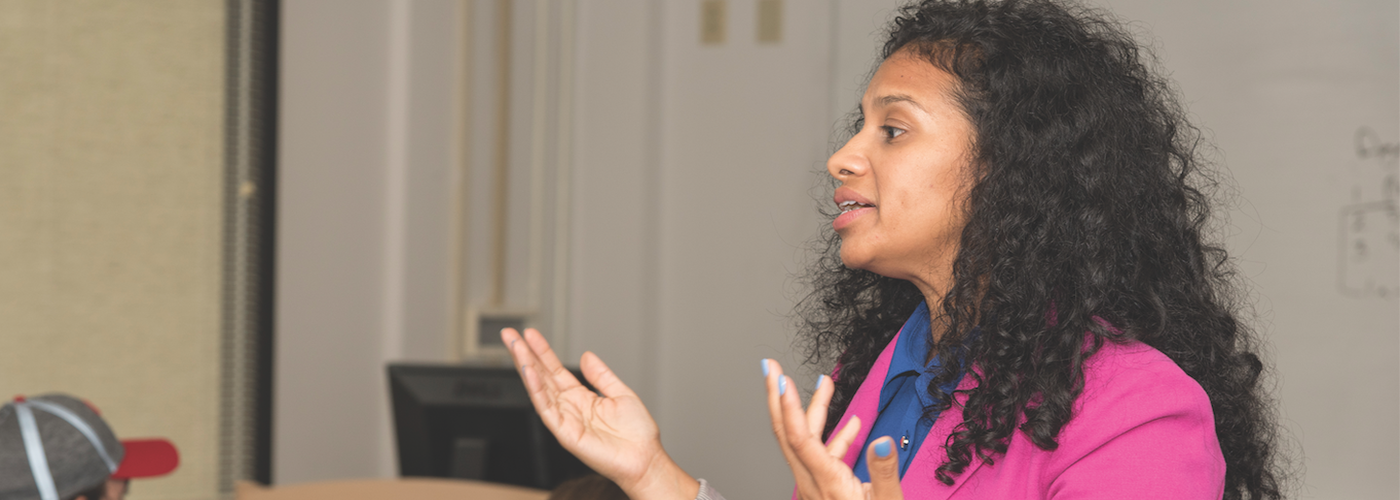Sociology Program Details
Sociology majors learn how to conduct and evaluate research, examine the social bases of behavior and analyze social institutions such as the economy, the family, education, religion, media, and government and social processes such as humor, attachment, interaction, intimacy, and group behavior. They develop competency in the contextualization of social behavior, the formulation of social inquiry, the social research process, and social analysis.
Working with department faculty, students majoring in Sociology select the appropriate sequence of courses in areas of special interest. In addition, for students with a strong interest in psychology, social work, or criminology, there is an opportunity to develop a double major program of study.
Upper-division Sociology majors collaborate with faculty on their own research projects, learning research skills from start to finish, and in off-campus supervised internships earning credits while exploring career choices. They also complete a senior capstone project, which integrates and synthesizes conceptual and research skills in a senior research project.
Juniors can apply for our Master's in Criminology and Criminal Justice 4+1 program. Through this joint bachelor’s and master’s degree program, qualified undergraduate students may earn both degrees in just five years.
You may also earn a Spanish Certificate in Criminal Justice and Social Services. The certificate focuses on language skills and terminology for professions in criminology, sociology, psychology, and social work.
Employment Outlook
A sociology major is useful to students planning a career in any area where an understanding of human behavior, knowledge of social principles and research skills are important.
The Sociology program prepares you for graduate-level courses in sociology, statistics, social work, and criminal justice, as well as for careers in fields such as:
Industry—Diversity, Equity and Inclusion (DEI) Officer, project manager, quality control manager, grant writer
Government—foreign service officer, human rights officer, legislative aide
Research—data analyst, census researcher, consumer analyst/researcher
Community—child advocacy specialist, career counselor, substance abuse counselor, case manager
Program Highlights
- Major or minor option
- Graduate with an internship, which increases knowledge, experience, and marketability
- Work with faculty to tailor coursework to your specific interests and receive in-depth advising
- Integrate knowledge into application in senior capstone project
- Take coursework in a research-based sequence, which prepares majors for graduate school and/or the workforce
Skills Learned
- Place events and behaviors in cultural and historical contexts, demonstrating how socio-cultural contexts influence thoughts, norm creation, and action
- Design and conduct a scientifically grounded research study that demonstrates mastery of data analysis and the research process
- Interpret and critically assess sociological theories and concepts using professional conventions of the discipline
- Implement sociological knowledge, skills, and values in an applied work setting in order to understand the organization and your role as a professional in it
- Integrate contextual, research, and theoretical skills in illustrating the sociological perspective of a given social issue or problem
